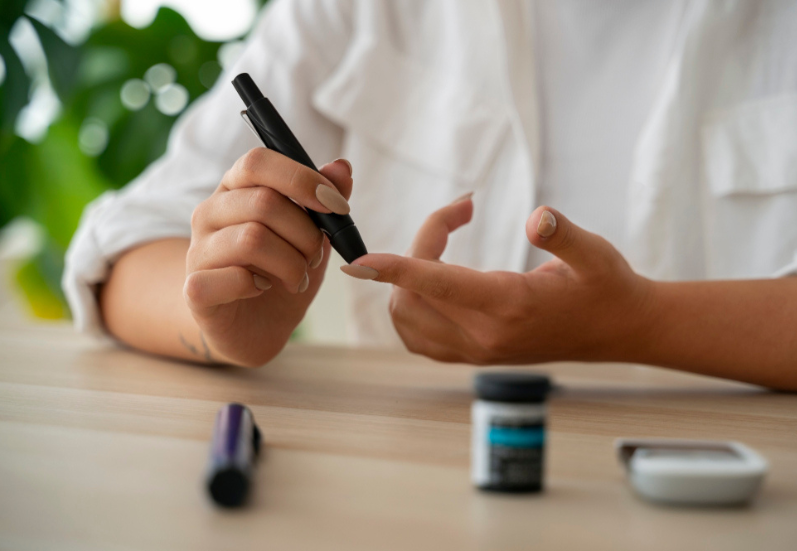
Today’s topic: Insulin Overpricing Lawsuit!
You’ve probably heard by now—insulin prices have gotten totally out of hand. I mean, people are literally skipping doses just to make their supply last.
Others are cutting back on groceries just so they can afford their next refill. It’s brutal. And honestly? That’s why more and more lawsuits are popping up.
The companies behind these price hikes—drugmakers, pharmacy benefit managers (PBMs), all of them—are being called out.
They’re getting hit with lawsuits over unfair pricing, shady backdoor deals, and just flat-out putting profits over people’s health.
So if you’re someone looking to take legal action or just wondering what that process even looks like… You are not alone! TBH, many people are actually on the lookout for a lawyer for an insulin overpricing lawsuit.
Hi. In today’s blog, I will be talking about the ongoing insulin overpricing lawsuit. So, if that’s what you are interested in knowing about, you have come to the right place. Therefore, keep on reading this blog till the end and thank me later…
What Is The Insulin Overpricing Lawsuit About?
Insulin has become a rocket in the price race in the recent past, which has caused a disaster for diabetics who are dependent on the drug for their lives.
A large number of people have come to the conclusion that they have to take collective legal measures to stop such an unjust price hike.
To give you a clear idea, attorneys are on the side of the plaintiffs. And they are fighting litigation against insulin manufacturers and pharmacy benefit managers (PBMs).
Why? Simple: Because these people have come up with the illegal scheme of inflating insulin prices to be able to sell at a higher price and make more money.
Each and every day, over 7 million people use insulin in the U.S. The insulin price spikes mean those people end up paying thousands of dollars more for their insulin, be it in insurance co-pays or directly, than they did only a few years back.
On the other hand, if they do not purchase insulin, death or grave medical problems are likely the outcomes.
For example, a 2018 study showed that due to the skyrocketing of insulin prices, over one in every four patients resorted to using less insulin than prescribed.
These fraudulent insulin overpricing schemes of corporate manufacturers and managers are the very source of the hurting of people physically and financially.
Lawyers have united to accomplish this goal together with their clients. And guess what? They are striving to stop the price hikes that are caused by corporate greed.
Additionally, they are fighting to get these companies to give back the money they have stolen, and to get compensation for the losses of their clients.
Filing the Lawsuit
First step? You gotta file. Not exactly thrilling, but hey—it’s how things get rolling.
The person filing (called the plaintiff, if you wanna get technical) pulls together all their proof.
Stuff like pharmacy receipts, prescription history, insurance info—whatever shows they’ve been overcharged or affected by all this mess.
That paperwork gets submitted to the court, along with a written statement explaining what happened and who’s responsible. They’ll talk about the financial strain, stress, all of it.
Once that’s in, the court reviews it. If everything checks out, boom—it moves forward. The person suing gets a notice saying, basically, “Okay, we’re going ahead with this,” and then a rough timeline for what’s next.
Investigation and Evidence Gathering
This part? Kinda like detective work.
After filing, both sides start digging for evidence. The legal team working with the plaintiff starts looking into emails, contracts, pricing agreements—anything that shows how insulin prices got jacked up in the first place.
Sometimes people from inside the industry speak up. Think former employees, healthcare workers, folks who’ve seen what really goes on behind the scenes. Their stories can be super important.
Then you’ve got experts—economists mostly—who break down the actual numbers. They’ll compare what insulin should’ve cost to what people actually paid. And those numbers? Yeah, they don’t lie.
Settlement Discussions
So once all the digging is done and both sides see what the other has? That’s usually when talk of a settlement kicks off.
Sometimes the drug companies realize it’s not worth risking a big loss in court, so they offer to pay up—or they agree to lower prices moving forward.
Plaintiffs (the folks suing) will look over the offer and decide whether it’s fair. The court might get involved here too, just to make sure no one’s getting lowballed or pressured into taking a bad deal.
If everyone’s happy, the case ends there. If not? Trial time.
Trial Proceedings
This is when things really get serious.
Both sides get their say in court. The plaintiffs talk about how badly they were affected—emotionally, physically, financially.
There are usually personal stories, maybe even medical issues from skipping or rationing insulin. Their lawyers bring in expert witnesses, evidence, all of it.
The defense (aka the drug companies) will try to justify their pricing. They might bring up production costs, research expenses, stuff like that. It’s… let’s say, debatable.
The judge or jury listens to both sides, and then comes the verdict. If the plaintiffs win? They could get financial compensation, and sometimes the companies get hit with extra penalties too.
Appeals and Final Steps
Not all cases end there, though.
If one side doesn’t like how things turned out, they can file an appeal. That’s when a higher court takes another look—not to re-do the whole trial, but to check if everything was handled fairly the first time.
Once the appeal wraps up (if there is one), the case is done. The person suing either gets what the court decided, or… they accept the result if it didn’t go their way.
Wrapping It Up!
Insulin overpricing lawsuits aren’t quick and they’re definitely not easy. But they matter. Every step—from filing the paperwork to gathering evidence, to maybe ending up in court—is a way for people to push back. To stand up and say, “Hey, this isn’t okay.”
And honestly? That fight might be just as important as the outcome.
In conclusion, insulin overpricing lawsuits are brought about by the insulin manufacturers and PBMs who are in the driver’s seat of the insulin market.
In the global market, Novo Nordisk, Sanofi, and Eli Lilly are the dominant players, holding a share of 99%. Meanwhile, PBMs Express Scripts, CVS Caremark, and OptumRx collectively control 89% of the U.S. pharmaceutical marketplace.
By engaging the services of legal professionals who are experts in the field, you have the power to bring these corporations to book for the wrongs they have committed.
Additionally, you’ll be able to ensure that you receive not only justice but also the compensation that you need and deserve.
Read Also:
- Difference Between Negligence And Malpractice?
- Ozempic Lawsuit: Can You Get Justice in Healthcare?
- 8 Fascinating Aspects of Medical Testimony that will Surprise You!











0 Reply
No comments yet.